On March 28, the Shenzhen Key Research Base for Humanities and Social Sciences — Research Center for German Industrial Culture at Shenzhen Technology University (SZTU) was officially inaugurated and a seminar on German industrial technology culture was held. The event was attended by Prof. Liang Yongsheng, vice president of SZTU; Fan Weijun, vice president of Shenzhen Academy of Social Sciences (Social Sciences Association); and some college deans and department heads from Shenzhen University and SZTU. The ceremony was presided over by Prof. Zhong Ling, dean of School of Foreign Languages at SZTU and director of the Center.
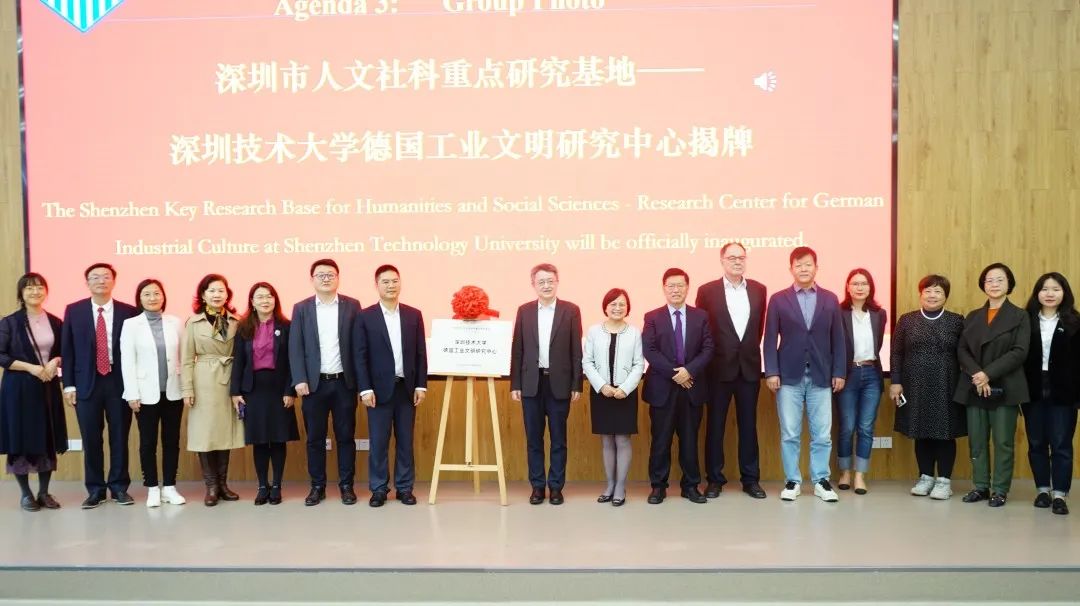
The Research Center for German Industrial Culture is inaugurated. [Photo/School of Foreign Languages]
The Center was founded in April 2021, making it the first research institution of its kind in China specializing in German industrial civilization and technology culture. By encouraging more researchers and teaching staff from SZTU to join and learning from the developing experience of German industry, it can help cultivate China’s own industrial culture, gain a new perspective on China’s research on Germany and put forward policy proposals and provide policy-making consulting for the high-quality development of the Guangdong-Hong Kong-Macao Greater Bay Area.
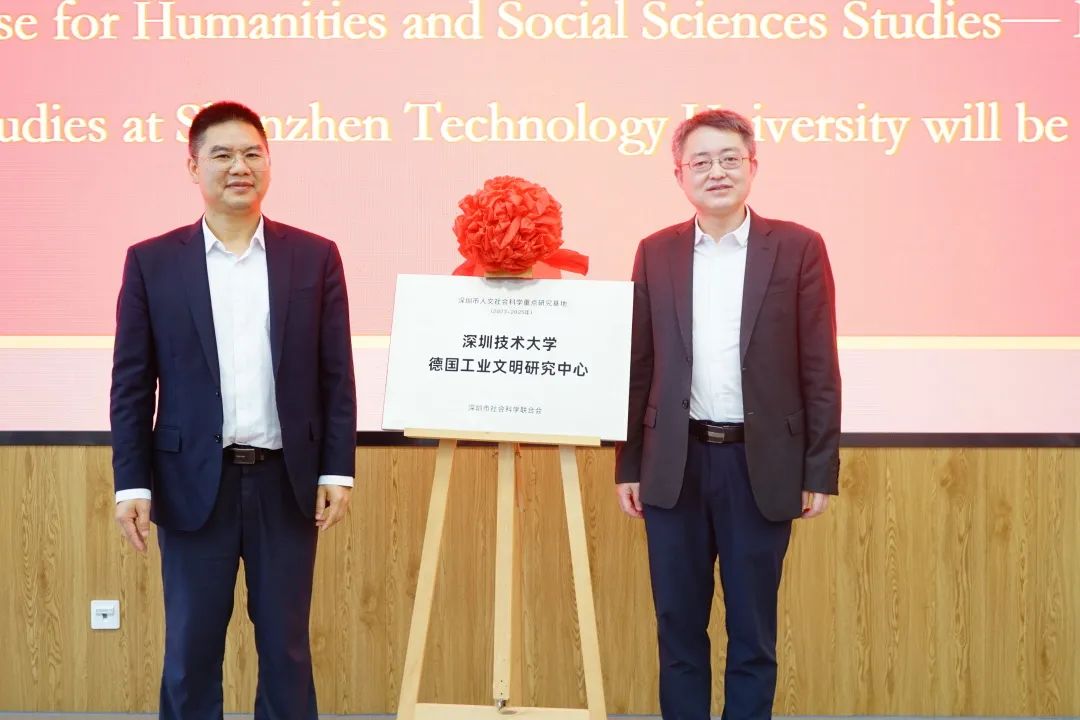
The Center is unveiled by Prof. Liang Yongsheng (right) and Fan Weijun (left). [Photo/School of Foreign Languages]
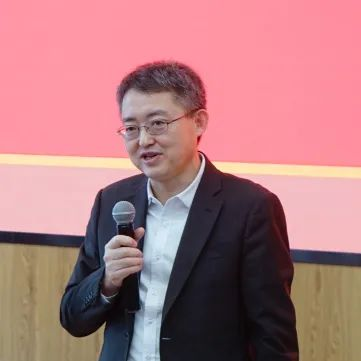
Prof. Liang Yongsheng recognizes the crucial significance of the Center. [Photo/School of Foreign Languages]
Prof. Liang Yongsheng recognized the significant contribution of the Center in investigating the culture of German industrial technology, the training system for technical personnel, science and technology policies, quality standard system and philosophy of science and technology. It is also favorable for promoting the exchange of technology culture between China and Germany and accelerating the development of SZTU as an internationalized, top-tier and exemplary first-class university of applied sciences. He emphasized that the Center, depending on digital platforms, should meet the demands of national development and the function requirement as a talent pool.
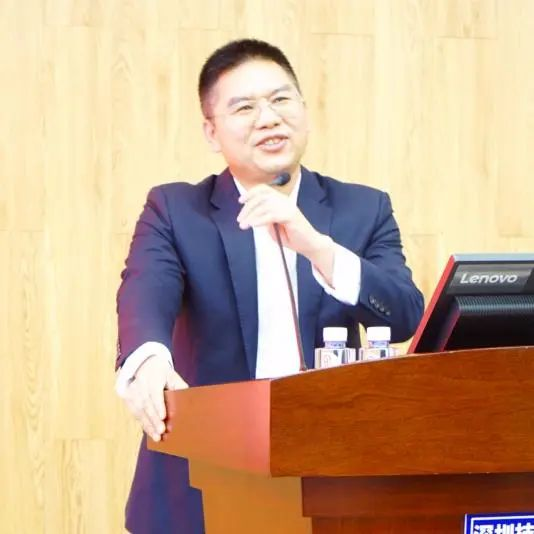
Fan Weijun holds expectations for the Center. [Photo/School of Foreign Languages]
Fan Weijun suggested that the Center should proactively engage in research on the culture of German industrial technology, as well as international and regional studies. He had high expectations for the Center to aid in the development of a humanities and social sciences framework that embodies the unique characteristics of Shenzhen. Additionally, the Center was expected to offer advisory services to decision-makers in Shenzhen, with the aim of bolstering the region’s competitiveness and global impact.
At the seminar on international and regional studies and German industrial technology culture, Prof. Dai Yonghong, dean of School of Foreign Languages at Shenzhen University, and Prof. Franz Raps, dean of College of Urban Transportation and Logistics at SZTU, delivered keynote speeches as guest professors of the Center.
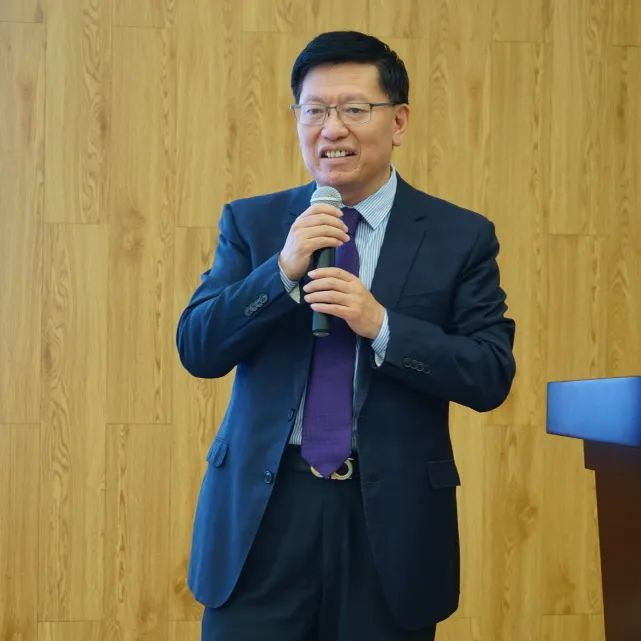
Prof. Dai Yonghong speaks on talent cultivation. [Photo/School of Foreign Languages]
Prof. Dai Yonghong made a report entitled “Nurturing Multifaceted Global Talents in the Context of Innovation and Transformation of Foreign Languages Discipline in the New Era”. He introduced the investigation of training personnel learning foreign languages. To meet the demands of domestic economic and social development, it is essential to train students with interdisciplinary skills and a global perspective. This will enable them to adapt to the ever-changing global political and economic landscape.
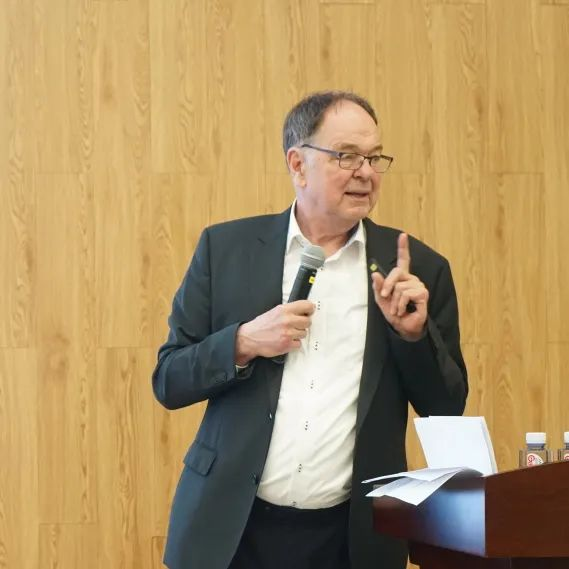
Franz presents an overview of industrialization in Germany. [Photo/School of Foreign Languages]
On the topic of “Industrial Development in Germany”, Prof. Franz Raps introduced the industrial development in Germany and emphasized the importance of talent training and investment in technological research to ensure the production of high-quality products, high production efficiency and significant innovation in Germany.
Drafted by Daisy(姚琦)/ International Cooperation & Student Affairs Office
Revised by International Cooperation & Student Affairs Office
Edited by International Cooperation & Student Affairs Office
